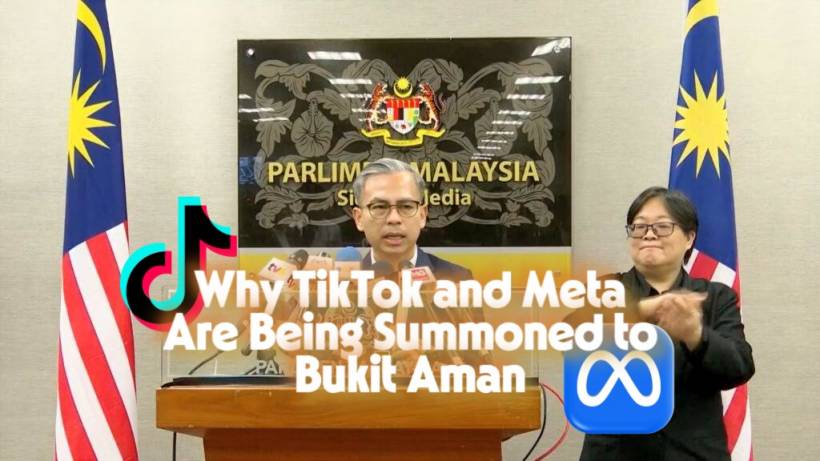Social Media Under Scrutiny in Malaysia - In Malaysia, the relationship between social media platforms and regulators has always been a balancing act. On one side, platforms like TikTok, Facebook, and WhatsApp offer communities a place to share, connect, and even do business. On the other, these same platforms have become breeding grounds for misinformation, harmful content, and in some cases, disturbing material.
Now, the Royal Malaysia Police (PDRM) is stepping in. On 4 September, top executives from TikTok have been summoned to PDRM's headquarters in Bukit Aman. The reason? Concerns over how the platform is handling the spread of fake news and how slow it has been in assisting police investigations.
Why TikTok Was Called In
Communications Minister Fahmi Fadzil confirmed that TikTok's management has been asked to explain themselves directly to the police. According to him, TikTok has been "very slow in providing information to PDRM," which creates challenges when authorities are trying to act quickly against viral misinformation.
The meeting at Bukit Aman will not be a small affair either. It will include high-ranking officials such as Inspector-General of Police Mohd Khalid Ismail and Attorney General Mohd Dusuki. Clearly, the government wants to send a strong message: social media companies need to take responsibility for what happens on their platforms.
Meta in the Hot Seat Too
It's not just TikTok facing pressure. Meta, the parent company of Facebook and WhatsApp, has also been called in. This time, the issue isn't misinformation but immoral and harmful content, including paedophilia-related material spreading through its platforms.
This adds another layer to the ongoing debate: how much effort are these tech giants really putting into moderating and cleaning up their platforms? For Malaysia, it seems the answer is "not enough."
What Happens Next?
Fahmi didn't mince his words. He said these platforms are "not taking the matter seriously," and made it clear that this isn't a one-time event. The dialogue will continue, and he added, "we will summon every platform," hinting that X (formerly Twitter) may be next in line.
For Malaysians, this development highlights the growing tension between digital freedom and digital responsibility. On one hand, users want freedom of expression. On the other, the spread of fake news and immoral content has very real consequences for public trust, safety, and even national security.
Final Thoughts
This latest move shows that Malaysia is taking a harder stance against global social media platforms. Whether TikTok, Meta, or others like X will step up their cooperation remains to be seen. But one thing is certain: the days of letting these issues slide seem to be over.





Comments